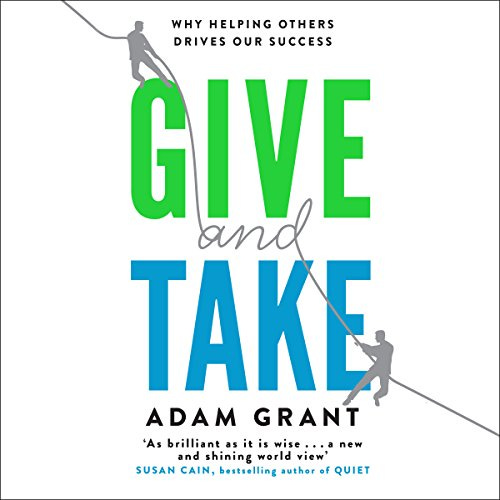Hello! This is Everything Is Amazing, a newsletter about curiosity, science, attention, wonder and really horrible ways to live under the sea.
And this week, it’s a speaking newsletter, using Substack’s audio tools combined with the dubious acoustical merits of my own face.
Click above to listen, or read on for the transcript.
TRANSCRIPT
When I was at secondary school (which I gather non-Brits call high school) in Yorkshire in the North of England in the 1980s, I had a teacher called Mr South. That’s not his real name because I’m about to say some fairly rude things about him, but I know that some friends from school get this newsletter, so - yes, THAT’S who I’m talking about.
Mr South was a severe-looking man with a pinched, ruddy face, who clearly had missed a glorious career as a character actor playing the villain in children’s adventure stories - you know, The Evil Gamekeeper Who Tries To Steal Their Boat, or The Evil Landowner Who Tries To Steal The Treasure And Get All The Credit After Our Heroes Discover It, or The Evil Lawyer Who…well, did lawyer things.
But Mr South was a teacher. A teacher of Rural Science - which to me, right now, sounds kind of exciting! The science of the earth, of trees, of flowers, of the land under our feet that invisibly shapes our behaviour, and all that. But - no. Rural Science, at least to Mr South, meant two things: gardening, and tyrannical fear.
The very first hour-long lesson we had with Mr South was dedicated to one task: covering our brand new green exercise books with brown wrapping paper covers. We’d all been issued with books that looked more or less the same as everyone else’s, but clearly this wasn’t enough for Mr South: they all had to be rendered identical. And so, he showed us, fold by fold, strip of tape by strip of tape, how to wrap our books in brown paper.
This was important, we were told. If our books didn’t have brown paper on them, he wouldn’t mark our homework, and we’d get the kind of grades we actually deserved. This information was delivered with all the force of a fanatic who wanted his entirely arbitrary and meaningless rules to leave a dent upon the world. Perhaps this was a replacement for leaving an actual dent upon us - I am sure that if caning was still legal, he would have just lined us up and thrashed us for much the same reasons.
I later discovered Mr South’s brown-paper fetish was legendary, and every student who took a class with him was confronted with it. It was like the ultimate example of learning by rote: even at the age of 14, we could all see there was absolutely no point whatsoever in doing this, or - spending an hour learning the best way to do it. But we had to do it anyway. You can imagine this is the kind of thing the Spartans were faced with at an early age, or Imperial Stormtroopers before they were allowed to clamber into their white ceramic vaguely toilet-like armour and entirely fail to shoot anyone. The point is to blindly obey while knowing it’s utter bollocks.
As it turned out, this was a good introduction to Mr South’s teaching style, which was dictatorial. I don’t just mean he dictated and we listened, I also mean he attempted to oppress us. Unfortunately for him, he was somewhat restrained by the educational charter of the school and by the common laws of the United Kingdom, but that didn’t stop him trying.
If you forgot your exercise book, or didn’t do the homework, you were given lines - something like “I must endeavor to adhere to the divine commands of my lord and master Mr South for I am so utterly worthless I am not even worth wrapping in brown paper”, which you had to copy out a couple of hundred times. Or, as a special punishment, you had to reproduce by hand a page from a newspaper, by writing and drawing it. This led to the memorable day when a member of my class copied out page 3 of The Sun, a British tabloid newspaper best-known for publishing lies and also a daily picture of a topless glamour model, always on page 3.
You can imagine how this was received by Mr South. It’s still stuck in my memory too, because - my classmate had never displayed any artistic talent, and that was most evident in this drawing, which was nightmare-fuel of the highest order. I do remember it was the only time, in a full year of that weekly class, that any of us laughed.
I don’t remember anything else about Rural Science, and I doubt that any of my classmates do either. Mr South was a terrible teacher, and perhaps a terrible human being - certainly if he was a saint, he was hiding it amazingly well. But - this is also a tragedy, because he was there to teach. To put useful knowledge in the heads of young people.
And instead, perhaps the only thing we learned is that it’s stupid as hell to wrap a school execise book (which already has a cardboard cover) in brown wrapping paper, but you have to do it anyway.
You probably remember your favourite teachers at school. I had a string of really great English Language & Literature teachers through school and college, and that’s probably why I’m now a professional writer. And see Adele’s reaction to meeting the teacher that most encouraged her when she was young. Great teachers, overflowing with enthusiasm and kindness, are a blessing in our lives.
And you could also say that bad teachers - are the opposite! But maybe that’s not true, because they’re showing you the effect of a lack of enthusiasm and kindness. And maybe that’s a good thing to be able to recognise.
When I first stumbled my way into charging money for my writing, sometime around 2008 or 2009, I correctly assumed I knew absolutely nothing about how to run a business, so I went and read lots of stuff - all the things everyone with big audiences were sharing. Firstly, I discovered the language was kinda obnoxious - all crush and kill and destroy and things like that. So, okay. And a lot of the advice itself was of the kind that suggested that for someone to do well, someone else had to be beaten, a zero-sum, scarcity-driven thing. In other words, the old, aggressively competitive & feudal way of doing business.
So I tried some of that for a while, and it got me nowhere. I assumed I wasn’t being aggressively competitive enough, I wasn’t hustling enough, or I just wasn’t…enough. But I stuck around, and got to know people who were doing really well - and they didn’t seem to be following the whole Highlander “there can only be one” ethos. They were enormously generous with their time and their wisdom, in a carefully ringfenced kind of way, and it got them work, and that work made them more and more money.
This, I’ve come to learn, is the other way of doing business online. By being thoughtful, considerate, helpful, kind, and nice.
These are all words that the crush kill destroy people seemed to hate, because they looked like weakness. And I also noticed that the people being thoughtful, considerate, helpful, kind and nice weren’t usually selling something, and if they were, it didn’t cost thousands of dollars and only have 2 places left with the doors closing at midnight. They weren’t doing that stuff - they were actually just helping people - and they seemed to be very busy, and they seemed to be very happy.
So I figured I’d rather aspire in that direction, and the kill and destroy people could fight it out, as they seemed to enjoy doing. If this was the slow lane for a creative life, at least it got you somewhere in the end which might not be, you know, “penniless in the gutter”. Far from it, in many cases.
But kindness in business still has a bad rap. You’re not being kind - you’re being weak. It’s a soft, limp kind of thing, like a lettuce that’s been in the fridge too long. Kindness was a bit like public speaking for introverts: a strong whiff of “look, you’re just not cut out for this, so either learn to act like an extrovert, or just give up.”
But then Susan Cain laid out a winning argument for introvertism being a huge asset for public speakers in her book Quiet - and she found that a lot of the prejudice against it goes back to Dale Carnegie, who wrote How To Make Friends And Influence People, which is partly a book that teaches you how to successfully fake interest in other people so you can get what you want from them - the very worst kind of salesmanship. Nothing kind there at all.
But what about learning to actually be interested, and to listen better, and to help? In other words - empathy?
I’m interested in this because empathy is the key to the third branch of curiosity. You may remember from season 1 of Everything Is Amazing that there’s diversive curiosity, ie. Shiny New Thing, the urge that makes us click and click until we’re racing sideways across the surface of the Internet, never pausing to look deeper. And there’s epistemic curiosity, the academic version, where you stop and look deeper and deeper and deeper at this single thing, uncovering all the hidden layers of knowledge buried beneath it.
And the third type is empathic curiosity, where you get curious about the lived experiences of other people. There’s a relevant word to use here, invented by writer John Koenig for his website The Dictionary of Obscure Sorrows, which is now a book, and I’ll quote the whole definition because it’s gorgeous:
“Sonder — noun. the realization that each random passerby is living a life as vivid and complex as your own — populated with their own ambitions, friends, routines, worries and inherited craziness — an epic story that continues invisibly around you like an anthill sprawling deep underground, with elaborate passageways to thousands of other lives that you'll never know existed, in which you might appear only once, as an extra sipping coffee in the background, as a blur of traffic passing on the highway, as a lighted window at dusk.”
It’s funny to think that Sonder is only about a decade old, considering how enthusiastically it’s been adopted (or stolen) by so many brands. But that’s where it’s from, and you can see why so many folk fell in love with it. Because it’s saying, Maybe this isn’t just about you. And it’s thoughtful, considerate, helpful, kind and nice.
But OK, this kind of thinking feels great. But does it get results? Like, does it help you become a success in whatever you’re doing, or is it just a consolation prize for being last, that place that we’re so often told that nice people end up in?
Organizational psychologist Adam Grant has looked at this, and he wrote a book about it, called Give And Take. And he found that - both these things are correct! In business, generous, kind, thoughtful people are often in last place - but also, they’re often in first place as well (not the exact same people, that would be weird). The generous folk, which Grant calls Givers, are the biggest successes, and also the biggest failures.
But the folk he calls Takers - who are only really concerned with themselves and what they can get out of every relationship for their own benefit - they tended to get mediocre results. They were kinda average: hanging in there, but nothing special. And alongside them, hugging the middle of the distribution, were the third category, which Grant calls Matchers, the ones who only ever think transactionally, ie. if I help you and you make a thousand dollars, I need to make a thousand dollars too, or some equivalent, or this whole deal is a waste of time.
Grant found this pattern repeated again and again in the workplace studies he looked at. The Givers were storming ahead - but they were also the ones left furthest behind. What gives here?
Grant believes the difference is down to the ability to be “otherish,” which is at the other end of the scale from selfishness. It’s where you can really put yourself in someone else’s shoes and consider their needs from their perspective. To me, this sounds a lot like empathic curiosity being put into action.
But he also spotted that generous Givers who were selfless - ie. ignoring their own needs - quickly burned themselves out. These are the ones that get left behind, and it makes sense: without healthy boundaries, helpfulness is a way to get taken to the cleaners by every Taker in the world. If you can’t empathize with yourself, then how is that treating yourself (and your time, and your energy) with the same respect you’re giving others? It’s not. What a message about yourself to broadcast to the rest of the world.
And maybe this approach applies to empathic curiosity too, and your attention, and where you choose to put it every day. Maybe it's essential to give your attention in ways you find enjoyable, and to focus on the people whose wellbeing actually matters to you. Not to fake it for success in a Dale Carnegie way, but to choose to focus on the good people doing good things - while also considering yourself as one of those good people, and making sure you’re feeling good and doing things you’re proud of.
Because of negativity bias, this is probably harder than focusing on the total jerks doing awful things, of which of course there are plenty, and social media is usually a frenzy of yelling about those people.
(Awful people have learnt that the best way they can get us to do their viral marketing for them is for them to say something utterly awful which will get amplified and shared. Awful people 1, everyone else, zero.)
But if we redirect our attention towards people who are worth our attention, because we respect our own attention properly and we know it’s valuable so we want to put it in the right places so maybe it could do some good in the world - how would that change everything?
It is true that the internet is optimized for negativity. But that doesn’t mean that you have to be optimized for negativity.
Now, I’m not talking about showing empathy towards people who don’t deserve it, which is the common criticism of niceness. Why do Bad people deserve our empathy? They probably don’t! So why are we giving them so much of our attention, above and beyond the minimum we need to give them to keep a careful eye on them to keep everyone safe? Why can’t we not do that, and direct more of our curiosity towards worthier places and worthier people that could really benefit from it?
These are big questions. I have not really even begun to get my head around all this stuff, and I’m currently buried under a number of books on the topic. I was going to start writing about it seriously this season, but then the Zanclean Megaflood viral Twitter thing happened in February, and most of my brain hasn’t been seen since. So, it’ll be next season of Everything Is Amazing that I’ll starting writing more about the science of empathic curiosity and the power of kindness, so I’m not going to pretend I have anything more meaningful to say on it right now.
But I will say that if someone’s more concerned with brown wrapping paper than human beings, that’s probably not a good sign.
See you next time!
Images: Michael Kucharski; Tim Mossholder.













